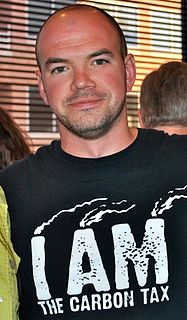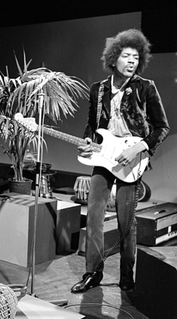A Quote by Weyes Blood
You know, around 14 or 15 I rebelled against Christianity pretty hardcore. I was reading a lot of other esoteric Eastern philosophy and getting into everything that wasn't dogmatic Christian. But I will say that it did kind of prime me for a more spiritual lifestyle. I didn't walk away with bitterness, even though there was some condemnation.
Related Quotes
My spiritual path has largely been Christianity - a label that I embraced and then rejected and have partially embraced again, as my understanding of Christianity has changed over time. When I accepted the mainstream, dogmatic definition of Christianity there came a point when I had to say, "Well, if that's what a Christian is, I'm not one."
I'm a pretty solid Christian. But even as an altar boy, I was always asking the bigger questions--you know: if God is, in fact, good, what is all this death I see? And if God is gentle, what is all this suffering I see? I've found some of the answers in Eastern religion. It explained my Christianity to me. Good and evil are the same thing. You can't have one without the other. It's the balance, it's the temperance of things.
I have my own way to walk and for some reason or other Zen is right in the middle of it wherever I go. So there it is, with all its beautiful purposelessness, and it has become very familiar to me though I do not know "what it is." Or even if it is an "it." Not to be foolish and multiply words, I'll say simply that it seems to me that Zen is the very atmosphere of the Gospels, and the Gospels are bursting with it. It is the proper climate for any monk, no matter what kind of monk he may be. If I could not breathe Zen I would probably die of spiritual asphyxiation.
I have my own cosmology that's kind of like an esoteric mix of a lot of different things that work for me and that to me, are worth exploring. There is a little bit of the archetypal Christianity that I've kind of reconciled because when you're raised that way, inevitably that infrastructure will persist into your adulthood.
Ask me if Christianity (my version of it, yours, the Pope's, whoever's) is orthodox, meaning true, and here's my honest answer: a little, but not yet. Assuming by Christianity you mean the Christian understanding of the world and God, Christian opinions on soul, text, and culture I'd have to say that we probably have a couple of things right, but a lot of things wrong, and even more spreads before us unseen and unimagined. But at least our eyes are open! To be a Christian in a generously orthodox way is not to claim to have the truth captured, stuffed, and mounted on the wall.
Definitely, and it's getting more spiritual. Pretty soon I believe people will have to rely on music to get some kind of peace of mind, or satisfaction, or direction, actually. More so than politics, the big ego scene. You know it's an art of words... Meaning nothing. Therefore you will have to get an earthier substance, like music or the arts.
I don't think I have rebelled against Latina culture. I have rebelled against those who try to make me warm tortillas for my brothers when they can warm them for themselves, I have rebelled against a patriarchal religion. I rebel against small mindedness in all ways and in every situation but those things are not an intrinsic part of Latina culture and I will fight tooth and nail against anyone who tries to make me feel like I'm less Xicana for not embracing the small-mindedness.
Religious life is not going to go away. It will take a different form. Why am I so sure it's not going to go away? Because there are people whose personalities and gifts, and interests and soul, are simply immersed in living this kind of a spiritual lifestyle. That only makes sense. If you can live an artistic lifestyle, why can't somebody live a spiritual lifestyle? We've always, in every single great tradition, had a percentage of the population that stands in the middle of us being the beacon that calls us to realize that the spiritual life is an essential part of every life.
Even today many educated people think that the victory of Christianity over Greek philosophy is a proof of the superior truth of the former - although in this case it was only the coarser and more violent that conquered the more spiritual and delicate. So far as superior truth is concerned, it is enough to observe that the awakening sciences have allied themselves point by point with the philosophy of Epicurus, but point by point rejected Christianity.



































